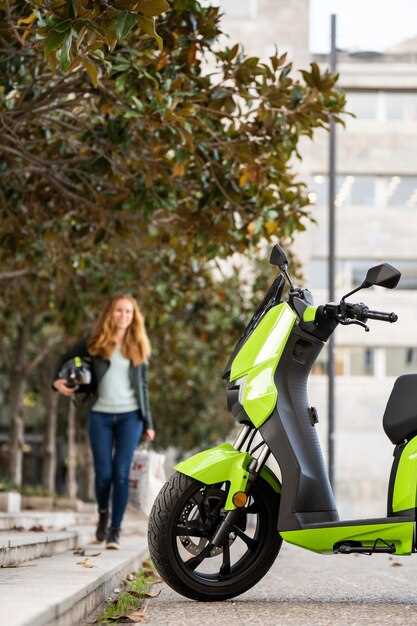
Choosing between a scooter and a motorcycle can be a challenging decision for many riders. Both options offer unique advantages and disadvantages, making it essential to understand the key differences in this comparison. While scooters are often praised for their ease of use and fuel efficiency, motorcycles are celebrated for their power and versatility.
In this article, we will explore the attributes of each mode of transportation, focusing on aspects such as performance, cost, and practicality. Understanding these factors will help you determine which vehicle best suits your lifestyle and riding preferences. Whether you are a daily commuter or an adventure seeker, assessing your needs will be crucial in making an informed choice between a motorcycle and a scooter.
Scooter vs Motorcycle: Which is the Better Choice?
When deciding between a scooter and a motorcycle, it is essential to consider various factors that cater to your specific needs and preferences. Both vehicles offer unique advantages and drawbacks, making the comparison crucial for potential riders.
Scooters are generally more user-friendly, especially for beginners. They feature automatic transmissions, making them easier to operate without the need for gear shifting. This aspect appeals to urban commuters who navigate through heavy traffic, as scooters are typically lighter and more maneuverable. Additionally, their smaller size allows for convenient parking options.
On the other hand, motorcycles provide a more powerful engine, delivering higher speeds and better performance on highways. They usually offer a more immersive riding experience, appealing to enthusiasts who appreciate the thrill of riding. Motorcycles can also be better suited for longer journeys, as they often come with enhanced comfort features and luggage capacity.
Fuel efficiency is another critical point of comparison. Scooters generally consume less fuel, making them a cost-effective choice for daily commuting. However, while motorcycles may have higher fuel consumption rates, their efficiency can vary significantly depending on engine size and riding style.
Safety should also play a vital role in your decision. Scooters may be perceived as safer due to their lower speeds and stability, but riders should consider protection gear regardless of the vehicle type. Motorcycles, while faster, often require more skill to navigate safely in various traffic conditions.
Ultimately, the choice between a scooter and a motorcycle boils down to individual lifestyle, riding experience, and intended use. By understanding the strengths and weaknesses of each option in this comparison, riders can make an informed decision that best fits their needs.
Cost Analysis: Upfront Expenses and Maintenance
When considering the choice between a scooter and a motorcycle, it is essential to analyze the cost implications related to both upfront expenses and ongoing maintenance. Understanding these factors can significantly impact your overall ownership experience and budget.
In terms of upfront costs, scooters generally present a more economical option. The purchase price of a new scooter typically ranges from $1,500 to $4,000, depending on the brand, model, and features. Furthermore, many scooters benefit from more affordable insurance rates due to their lower power and speed capabilities. This makes them an attractive choice for first-time riders and those seeking economical transportation.
Conversely, motorcycles often have higher initial costs, ranging from $5,000 to upwards of $20,000 for high-performance models. Additionally, motorcycle insurance typically costs more, as it is viewed as a higher-risk vehicle. Riders may encounter higher premiums, which should be factored into the overall expense structure.
Maintenance costs also differ significantly between the two. Scooters generally require less frequent maintenance due to their simpler mechanics and lower power outputs. Regular service checks, oil changes, and tire replacements are typically less expensive, making overall upkeep more manageable for scooter owners.
Motorcycles, on the other hand, often demand more extensive maintenance, especially if they are larger or more complex models. Parts and servicing can be costly, and it is recommended to budget for these potential expenses. Additionally, some motorcycle types may require more specialized skills for repairs, which can further inflate maintenance costs.
Ultimately, the choice between a scooter and a motorcycle involves evaluating your financial situation and your intended use. While scooters offer lower upfront costs and maintenance expenses, motorcycles provide greater performance capabilities, albeit at a higher price. Careful consideration of these factors will help you make an informed decision that aligns with your budget and riding needs.
Performance and Speed: Everyday Commuting Needs

When considering the performance and speed of scooters and motorcycles for daily commuting, several factors come into play. Scooters typically feature smaller engines, usually ranging from 50cc to 250cc, allowing for efficient city travel and ease of maneuvering through traffic. Their lightweight design enhances agility, making them ideal for short trips, and they often achieve decent speeds of up to 60-70 mph, which suffices for urban environments.
In contrast, motorcycles generally possess larger engines, from 250cc to over 1000cc, offering superior power and speed. This allows motorcycles to reach higher velocities, with many capable of exceeding 100 mph. Such performance is beneficial for longer commutes or highway travel, where speed and stability become crucial. Moreover, motorcycles provide a greater range of cruising speeds, making them versatile for both city and country rides.
Another aspect to consider is fuel efficiency. While scooters excel in economical fuel consumption due to their smaller engines, many modern motorcycles have also adopted fuel-efficient technologies, balancing performance with cost-effectiveness. Ultimately, the choice between a scooter and a motorcycle for everyday commuting depends on individual needs, including distance, speed requirements, and the nature of the journey.
Safety and Insurance: Risks and Coverage Options

When choosing between a scooter and a motorcycle, safety and insurance considerations play a critical role in the overall comparison. Each type of vehicle presents unique risks primarily related to their design, speed capabilities, and handling characteristics.
Motorcycles are generally larger and faster than scooters, which can increase the risk of severe injuries in the event of an accident. Riders can face various hazards, including:
- Thunderous road conditions
- Other drivers’ negligence
- Inadequate protective gear
On the other hand, scooters, being lighter and smaller, may offer greater maneuverability in urban settings but are not without risks. Common safety concerns for scooter riders include:
- Limited visibility to other drivers
- Less stability at higher speeds
- Inexperienced riders
Regarding insurance, both motorcycles and scooters require coverage, but the specifics can differ significantly. Motorcycle insurance typically includes:
- Liability coverage
- Collision coverage
- Comprehensive coverage
- Uninsured/underinsured motorist coverage
Scooter insurance often has lower premiums compared to motorcycle insurance due to the generally lower speed and risk profile associated with scooters. Common coverage options for scooters include:
- Basic liability insurance
- Collision coverage
When considering the best choice, riders need to assess their own risk tolerance and riding experience. Proper training, wearing safety gear, and choosing adequate insurance coverage are vital steps in ensuring safety, regardless of whether one opts for a scooter or a motorcycle. Ultimately, this comparison boils down to individual preference and specific use-case scenarios.

